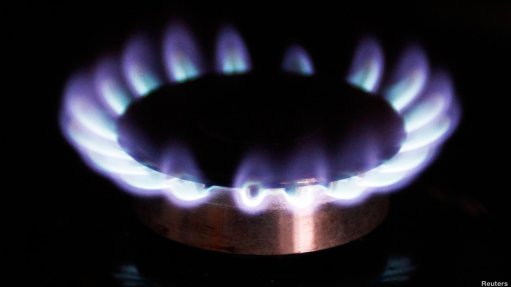
Photo by: reuters
The underdeveloped biogas market in South Africa can largely be attributed to the country’s historical waste management policy and an absence of regulatory incentives, both of which have driven capital costs for biogas projects to upwards of R30-million per megawatt, the Biogas National Conference heard on Wednesday.
Green economy agency GreenCape waste economy sector manager Gracia Mungaga told delegates that South Africa had experienced limited market penetration for biogas, with some 300 projects currently under development or in operation around the country.
“This is in stark contrast to countries such as Germany, where 1 000 commercial biogas plants are constructed yearly; India, which boasts 12-million such plants; and Uganda, where 600 biogas projects are under way,” she noted.
South Africa’s low uptake of biogas opportunities was largely the result of landfill being the most common means of waste disposal, and the lack of separation of biomass at source.
A lack of incentivisation by government had also constrained the development of biogas projects, which were characterised by exceptionally high initial capital costs.
Further inhibiting industry growth was complex municipal procurement legislation, which made it difficult to secure a long-term agreement for biomass waste, as well as for private sector entities to enter into public–private partnerships with municipalities.
This was exacerbated by the fact that waste-to-energy projects triggered multiple environmental regulations, which made land rezoning, and ownership, difficult.
“Biogas projects are also afforded limited access to the grid and are offered low tariffs by the Department of Energy (DoE). Biogas and landfill waste-to-energy projects are offered [tariffs of] 90c/kWh and 94c/kWh respectively, which is in stark contrast to the R1.90/kWh tariff currently seen in Germany,” Mungaga said.
Despite these challenges, the Southern African Biogas Industry Association, which organised the conference in collaboration with the DoE and the Development Bank of Southern Africa, held that the biogas industry had the potential to generate 2 500 MW of power, which could extend government’s Renewable Energy Independent Power Producer Procurement Programme (REIPPPP) further.
The REIPPPP presently aimed for South Africa to produce 3 725 MW of power from wind, concentrated solar energy, biogas, biomass and landfill gas by 2016.
In response to criticisms from industry, Deputy Energy Minister Barbara Thompson added that developing renewable-energy sources was an important element of government’s plan to improve national energy security.
“Examining barriers to adoption, policy and legal limitations, standards and legislation are part of government’s mandate, and we will continue to explore sustainable energy initiatives that mitigate climate change.
“This will assist us in meeting targeted infrastructure investments that will usher in renewable technologies and break the cycle of energy exclusion, which perpetuates poverty,” she said in a statement.
Among the key planned outcomes of the conference was the establishment of the Southern African Biogas Steering Committee, which would comprise key stakeholders to facilitate biogas mainstreaming.